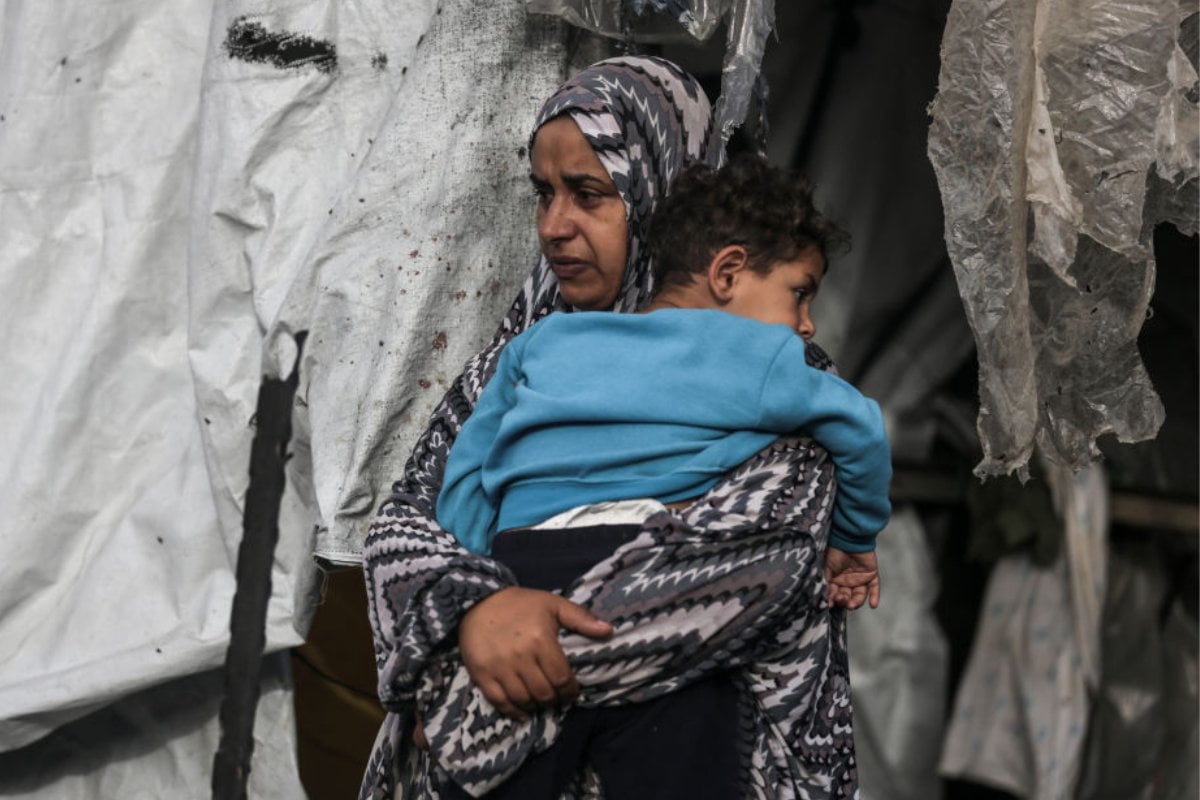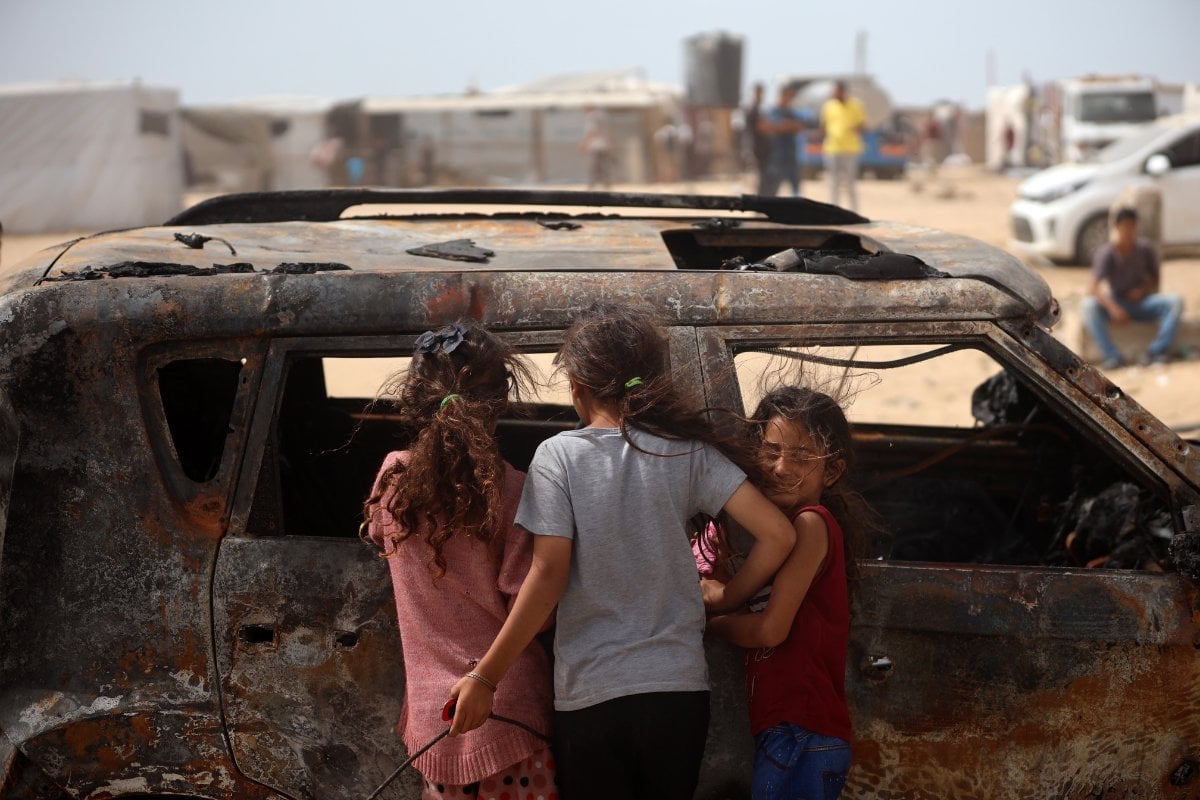
For more news as it breaks, listen to our daily news podcast The Quicky here.
Imagine this scene as you put your child to bed.
Instead of a nursery you lovingly decorated, you’re in a tent with 20 people.
Instead of a clean bottle you fill from the tap, you scoop from a dirty bucket that was filled only after you waited in a queue for hours.
The sound of emergency sirens and your growling stomach drown out the lullaby you sing to lull them to sleep.
Families nearby are digging trenches to use as toilets.
Others are digging through garbage in search of food.
The fear around you is palpable. So is the smell of death.
There are no sanitary products.
No rubbish collection.
No electricity.
You go to bed not knowing if you will be safe tomorrow. If your loved ones will be safe.
You wake to the screams of other mothers mourning their families.
This is the reality of life as a woman in Gaza right now.
Less than 48 hours after an Israeli air strike on another camp was met with global condemnation, Gaza’s emergency services are reporting a second air strike in the village of Al-Mawasi.


Top Comments